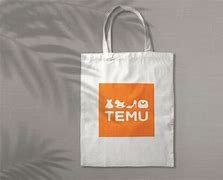With its low-cost, direct-from-manufacturer model, Chinese e-commerce giant Temu has entered the Nigerian market, challenging local competitors such as Jumia, Konga, and Jiji.
Analysts predict that this heightened competition will benefit Nigerian consumers by offering lower prices and a wider selection of products.
Launched in 2022 by PDD Holdings, the parent company of the Chinese e-commerce platform Pinduoduo, Temu has built its reputation on providing affordable products shipped directly from suppliers.
The platform reportedly spent approximately $2 billion on Facebook and Instagram advertisements last year, according to The Wall Street Journal, highlighting its aggressive strategy to gain market share.
The company’s recent entry into Africa’s most populous nation is expected to intensify competition in a market projected to grow from $12 billion in 2019 to $75 billion by 2025, according to the US International Trade Administration.
Jumia, often regarded as the industry leader in Africa, has faced increasing challenges, including a 13 per cent year-on-year revenue decline for Q3 2024 and a stagnant customer base of 2 million users since 2023.
Professor and investor at Tekedia Capital, Ndubuisi Ekekwe, believes Temu’s arrival marks a new era for the sector.
“In six months, the largest consumer e-commerce company in Nigeria will be Temu if they apply the same strategy they used in the United States,” Ekekwe wrote in a LinkedIn post. “Jumia, Jiji, and Konga will need to upgrade their strategies to remain competitive.”
Analysts suggest that the increased competition will ultimately benefit Nigerian consumers with lower prices and a broader range of offerings.
“Temu’s entry could really shake things up and push local players to raise their game,” said human resources consultant Obaro Aziza. “If they can overcome Nigeria’s logistical challenges, this could be a major win for both the market and consumers.”
However, Gloria Otti, Corporate Relations Manager at AfriCred, expressed concerns about the broader economic impact.
“The economic advantage for Nigeria? I’m not so sure,” Otti said. “Production happens overseas, which only means increased foreign exchange spending. While Temu’s arrival might push competitors to improve, it’s not necessarily a win for the local economy.”
Otti also called for stronger regulation to protect domestic businesses. “There are better ways to encourage competition—having highly effective regulatory bodies, for instance,” she added.
Nigeria’s infrastructure and logistical hurdles could complicate Temu’s operations. Nonetheless, Ekekwe suggested the company might invest in local delivery firms to navigate these challenges.
“This could inspire local startups to scale up and innovate,” he said. “Temu’s entry may not only disrupt e-commerce but also infuse its ambitious ethos into Nigeria’s ecosystem, teaching local companies how to dream big and scale effectively.”

